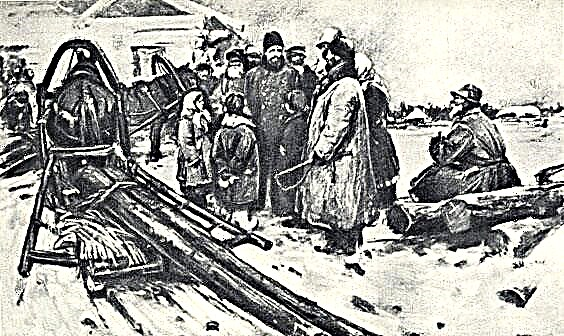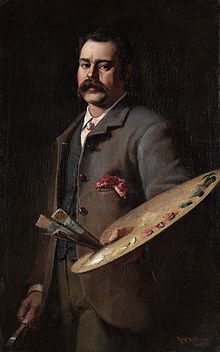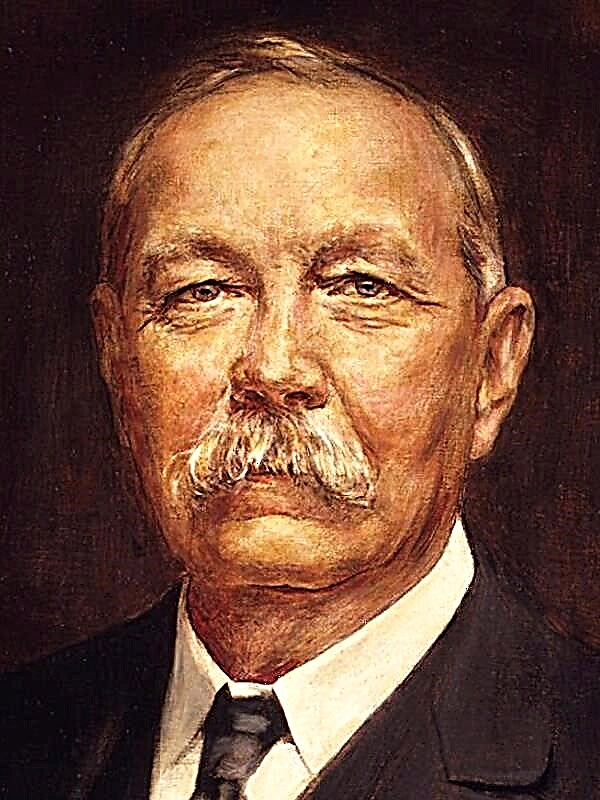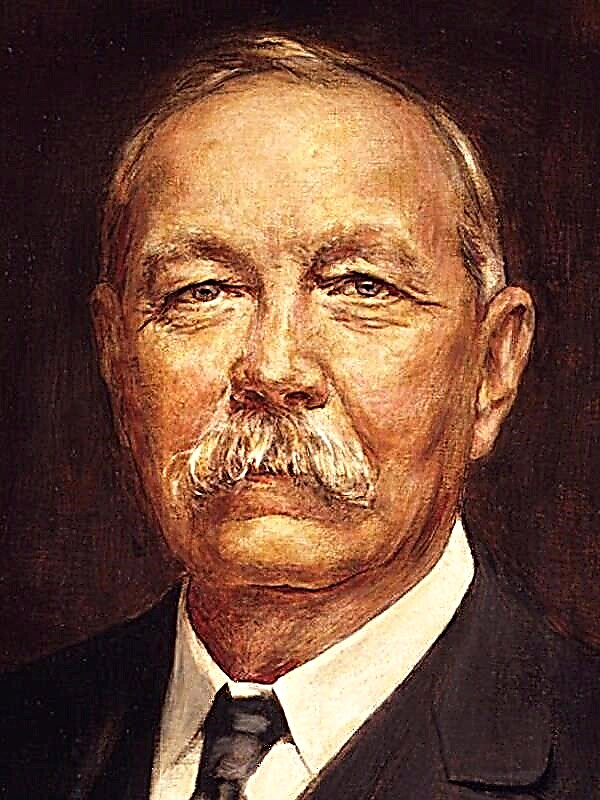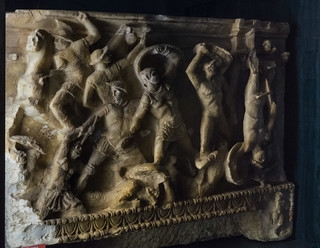August 1931 From the Mexican port of Veracruz, the German passenger ship Vera departs, which is due to arrive in Bremerhaven in mid-September. From Mexico, torn by political passions, the ship follows to Germany, where National Socialism raises its head. The diverse passenger community - Germans, Swiss, Spaniards, Cubans, Americans - collectively compose a slice of modern society in anticipation of great upheavals, and the portraits of these typical representatives of humanity are distinguished by psychological accuracy, to which the mercenarist mercilessness is added.
At first, life on the ship goes in the usual way: passengers get acquainted, exchange ritual remarks. But gradually, in the speeches of some of them, eloquent phrases begin to slip behind them, for which the ideology of totalitarianism, which has not yet been formally formalized, exists at the household level, trying to make itself public, to draw on the banners and lead those who believe in the final and decisive battle with the enemies of the nation. Lizzy Speckenkiker, who sells lingerie, will insist that only German speaks real German in her native Hanover; Frau Rittendorf, a retired governess, writes in her diary that she believes in the all-conquering role of the race; and the hunchback Herr Glocken, with his miserable appearance, will lead her to speculate that children born with physical disabilities should be killed in the interests of mankind.
Herr Rieber, the publisher of the women's magazine, argues in a similar way. He intends to educate the minds of women with articles on the most important problems of our time. He boastfully reports that he has already agreed with one luminary about a highly scientific treatise on the need to destroy cripples and other inferior ones. When Lizzy, flirting with him, asks how to help the unfortunate inhabitants of the lower deck, where the Spaniards-daybearers travel, he replies: “Drive into a large oven and let the gas go,” which plunges his interlocutor into laughter paroxysms.
Even before the Nazis came to power, before the establishment of a totalitarian regime, ordinary passengers showed amazing political foresight.
When it turns out that the German Freitag has a Jewish wife, the ship beau monde unanimously expels the defiler of the race from his ranks. He is seated at the same table with businessman Leventhal, who supplies religious items to the Catholic churches. The Jewish Leventhal, in turn, pours Freitag and especially his absent wife with contempt - she married a “gentile” and defiled the purity of her race.
Gradually, on the ship commanded by Captain Thiele, a prototype of the great Reich is established. So far, it doesn’t reach open terror, but the shipping majority, including the naval ideologist, profound foolish professor Gutten, has psychologically adopted the “new order”. Only the Fuhrer is needed. Captain Thiele, suffering from indigestion and a sensation of unrealized opportunities, longs to get into those. He watches an American gangster movie and dreams of power: “he secretly reveled in this picture. Lawlessness, bloodthirsty madness flares up again and again, at any hour, in any unknown place - you will not find it on the map, but always among people whom, by law, can and must be killed, and he, captain Thiele, is always at the center of events , commands and controls everything. ” The modest charm of fascism captivates not only failed heroes like Herr Rieber and Captain Thiele. Quiet, meek creatures find considerable comfort in the idea of the power of racial or class chosenness. Quite nice Frau Schmitt, who suffered from the vulgarity of Herr Rieber and sympathized with Freytag after expelling the latter from a “pure” society, suddenly is full of self-confidence, determination from now on to continue to assert her rights in the fight against circumstances: “Frau Schmitt rejoiced in her soul, washed her with a warm wave a feeling of consanguinity with a great and glorious race: even if she herself is the smallest, most insignificant of all, but how many advantages she has! ”
Most characters are torn from their usual sedentary life and lack strong roots. Frau Schmitt carries the body of her deceased husband to her homeland, where she has not been for a long time. Gutten, the headmaster of a German school in Mexico, is returning to Germany, although he will be completely unknown there. Mexico is being replaced by Switzerland by the former owner of the Lutz hotel with his wife and daughter of eighteen years old. Many do not know what the warmth of the hearth is, others, on the contrary, are suffocating in its suffocating atmosphere (Karl Baumgartner, a lawyer, is a hopeless drunkard, and his wife is angry with the whole world). According to the laws of social chemistry, these wandering atoms are quite capable of merging into a totalitarian mass.
Massive totalitarian movements, reminiscent of Porter's long-standing sociological truth, arise when the inert middle undergoes processing from above and below - imbued with ideas that the intellectual elite produces, is charged with the energy of declassed elements. When the intellectual and criminal work in unison, a single impulse is born. The respectable bourgeois Porter is shocked by the baser instincts of the Spanish dancers, they are outraged when they walk through the shops of Tenerife with a hurricane, expropriating everything that is bad, and then involving passengers in a scam lottery, playing stolen goods. But moralists from the first and second classes do not even suspect that there are much stronger bonds between them and the "dancers" than it might seem. The criminal immorality of the dancers only sets off the hidden shamelessness of the riber and the thiele, which will still show themselves in the years of Nazism.
Writing out a gloomy collective portrait of the future loyal subjects of the Führer, Porter does not make discounts to representatives of other nations. The love between Americans Jenny Brown and David Scott fades away, dies in the struggle of pride. Jenny, by the way, was too keen on the struggle for the rights of those to whom she had the most distant relationship, and the constant discontent and bitterness of the artist David was a dangerous symptom of creative insolvency.
Porter's heroes have excelled in the science of hate. Aryans hate Jews, Jews in the person of a businessman of Leventhal - Aryans. Young Johann hates his uncle Willibald Graff, a dying preacher, whom he takes care of, like a nurse, for fear of being left without an inheritance. Texas engineer Danny is convinced that Negroes are lower-order creatures with a focus on money, women, and hygiene. Mrs. Tredwell, it seems, is not a stupid and kindly one, dreams of being not molested by others and bothering with her idiotic problems. She despises Lizzy Speckenkiker, but calmly tells her Freytag's family secret, which he told her at the moment of revelation. And during a dance and lottery party, Mrs. Treadwell, having poured out alone, terribly beats the unlucky Danny, who was chasing a Spanish dancer and mistaken for the door. She pounds his heel with shoes on his face, as if taking out on him all the grudges and disappointments that had accumulated over many years.
Swede Hansen seems to be a radical. “Kill your enemies, not your friends,” he shouts to the passengers who fought on the lower deck. He makes angry remarks about modern society - and it seems to be the case, but Freytag noticed in this oil trader “a property inherent in almost all people: their abstract reasoning and generalization, thirst for Justice, hatred of tyranny ... too often only a mask, a screen and behind it lies some sort of personal resentment, very far from philosophical abstractions that seem to excite them. ”
A fire of mutual hatred is blazing on the ship, hiding behind the need to observe decency and follow instructions. The courtesy of the ship's treasurer is polite and prudent. For many years now he has been tempted to kill everyone who is forced to smile and bow. The maid is indignant, ordered to bring a cup of broth to the dog Guttenov. The old bulldog was thrown overboard by the mischievous children of Spanish dancers, but the Basque fireman saved him - at the cost of his own life, an act that puzzled passengers of the first and second classes. The angry monologue of the maid - “the rich man’s dog is drunk with meat broth, and the broth is cooked from the bones of the poor” - the corridor boy interrupted: “And if they let me, both the dog and the fireman, would drown, and you with them, old fool. .. "Well, a holiday on a ship becomes a real battle when, under the influence of alcohol and general excitement, ordinary people turn into barbarians. Mrs. Treadwell deals with Danny, Hansen smashes a bottle on Rieber's head, which has always annoyed him. There is a war of everyone with everyone ...
However, after an evening bacchanalia, life on the ship again enters into its usual course, and soon the ship enters the port of destination. To the sound of "Tannenbaum" passengers without a word go to land. Ahead of the unknown.



